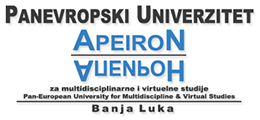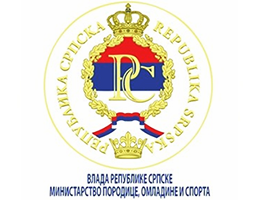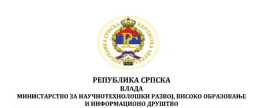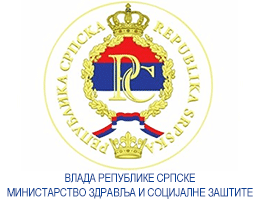Partial Quantitative Changes of Functional Skills Students Under the Influence of Swimming Program
Volume 2, Issue 2 (2012)
Volume 2, Issue 2 (2012)
Partial Quantitative Changes of Functional Skills Students Under the Influence of Swimming Program
Abstract:
The main objective of this study was to determine the partial quantitative changes (differences) functional abilities occurred under the influence of the three-month program for students swimming I and II. Year on The Faculty of Sport and Physical Education, University in Sarajevo.
The study was conducted on a sample of 106 participants, students of I and II. Year , The Faculty of Sport and Physical Education, University of Sarajevo, male, aged 20-22 years, clinically and psychologically healthy and without any distinct morphological and locomotor defects.
In study was applied 6 variables for assessing functional abilities: Maximal oxygen uptake O2 (determination) (FSMPO2) Margarija test (maximal anaerobic capacity (FSMT), Vital lung capacity (FSVKP) Systolic blood pressure (FSFSIS), diastolic blood pressure (FSFDIJ), heart rate at rest (FSPULS).
The analysis of possible changes (differences) in the variables applied to assess the functional capacity between the initial and final measurements was applied to analyze the results of T-test for dependent samples.
Based on the analysis results given change (T - test) can be said to be under the influence of swimming, there was a statistically significant positive change (partial quantitative effects) in all variables, functional skills level of significance of p = 0.05 for respondents-students of the Faculty sport and Physical Education, University of Sarajevo. Also, it can be concluded that the swimming proved to be very efficient and useful activity to improve the functional abilities of patients, as confirmed by many previous studies.
The study was conducted on a sample of 106 participants, students of I and II. Year , The Faculty of Sport and Physical Education, University of Sarajevo, male, aged 20-22 years, clinically and psychologically healthy and without any distinct morphological and locomotor defects.
In study was applied 6 variables for assessing functional abilities: Maximal oxygen uptake O2 (determination) (FSMPO2) Margarija test (maximal anaerobic capacity (FSMT), Vital lung capacity (FSVKP) Systolic blood pressure (FSFSIS), diastolic blood pressure (FSFDIJ), heart rate at rest (FSPULS).
The analysis of possible changes (differences) in the variables applied to assess the functional capacity between the initial and final measurements was applied to analyze the results of T-test for dependent samples.
Based on the analysis results given change (T - test) can be said to be under the influence of swimming, there was a statistically significant positive change (partial quantitative effects) in all variables, functional skills level of significance of p = 0.05 for respondents-students of the Faculty sport and Physical Education, University of Sarajevo. Also, it can be concluded that the swimming proved to be very efficient and useful activity to improve the functional abilities of patients, as confirmed by many previous studies.
Keywords:
students, functional abilities, the swim, the T-test
Full Text:
References:
- Armstrong, N., Welsman, J.R. & Chia M.Y.H. (2001). Short term power output in relation to growth and maturation. Br J Sports Med , 35(2): 118-24.
- Grčić – Zupčević, N. (1996). Efikasnost različitih programa te mogući čimbenici uspješnosti učenja plivanja. Neobjavljena doktorska disertacija. Zagreb: Fakultet fizičke kulture.
- Đurašković, R. (1997). Sportska medicina. Niš: SIA.
- Jovanović, D. i Radovanović, D.(2003). Praktikum iz fiziologije. Niš: SKC.
- Madić, D. i Okičić, T. (2006). Uticaj programiranog plivanja na respiratorni status, Montenegrosport, Podgorica. Sport Mont, Podgorica, br.10-11/IV.
- Mirvić, E. (2011). Nivo transformacionih promjena funkcionalnih, motoričkih sposobnosti i plivačke efikasnosti pod utjecajem programa plivanja. Neobjavljena doktorska disertacija. Sarajevo: Fakultet sporta i tjelesnog odgoja, Univerziteta u Sarajevu.
- Rađo, I. (1997). Transformacioni procesi motoričkih i funkcionalnih sposobnosti i različitih aspekata u plivanju. Neobjavljena doktorska disertacija. Sarajevo: Fakultet fizičke kulture.
- Rađo, I. (1998). Transformacioni procesi motoričkih i funkcionalnih sposobnosti i različitih aspekata u plivanju. Monografija, Sarajevo: Fakultet fizičke kulture.
- Ribeiro, J.P., Cadavid, E., Baena, J., Monsalvete, E., Barna, A. & De Rose, E.H. (1990). Metabolic predictors of middle distance swimming performance. Br J Sports Med, 24(3): 196-200.
- Roels, B., Schmitt, L., Libicz, S., Bentley, D., Richalet, J. & Millet, G. (2005). Specificity of VO2max and the ventilatory threshold in free swimming and cycle ergometry: comparison between triathletes and swimmers. J Sports Med, SAD, 39(12): 965-968.






